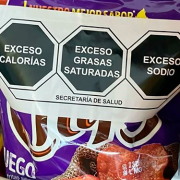Industry interference in the regulation of tobacco and nicotine products
It is not new that, based on different marketing strategies, the tobacco industry has been making us believe for more than 80 years that consuming its products will make us more cool, have more success in our lives or see ourselves much more attractive. for the sole fact of smoking. However, these are not the only tactics they use to stay in the market.
“Below, we offer a google translate version of the original article in Spanish. This translation may not be accurate but serves as a general presentation of the article. For more accurate information, please switch to the Spanish version of the website. In addition, feel free to directly contact in English the person mentioned at the bottom of this article with regards to this topic”.
Although there is evidence about how harmful tobacco is, there is still a lot of work to be done regarding its regulation. According to data from the World Health Organization (WHO), it is known that tobacco kills up to half of the people who consume it, and each year more than 8 million people die from it. More than 7 million of these deaths are due to direct consumption and about 1.2 million are due to the exposure of non-smokers to second-hand smoke.
One of the causes of these statistics is that tobacco companies use various interference actions. What does this mean? Who use a wide range of tactics and strategies (direct or indirect) that interfere with the establishment and application of tobacco control policies. Many times they are clear and easy to identify, but in most cases, they are not. That is why in this note, we tell you what are some of the interference strategies that can be observed in our country so that you do not believe it…
How does the industry interfere in our country?
Following the criteria of the Regional Interference Index, (a global survey that was supported by STOP and in which more than 20 Latin American NGOs participated), and reviewing national public databases, the following interference strategies were listed by part of the tobacco industry:
- Lobby: It is called in this way when members of the tobacco industry carry out permanent and sustained lobbying on national officials, by requesting meetings. This can be corroborated by checking the open database of the Single Audience Registry. Although the greatest lobbying activity is generally linked to tax pressure, the commercialization of “new products” in Argentina is also an issue that is brought up in conversations between senior staff of tobacco companies and national officials.
Through the analysis of the databases of audience records, it can be seen that the representation of the two main tobacco companies operating in Argentina (British American Tobacco and Philip Morris International) doubled in recent years (2004 to date ); and from 2017 to date alone, 34 formal meetings were held between industry representatives and national government officials. In addition, these meetings were held more and more frequently: as of 2016, the time between meetings was shortened: from meeting every 7 and a half months; lobbyists and officials began to meet every 4 months.
At the provincial level there are no open records on the officials’ agendas. - Economic pressure. The industry asks to lower taxes under threat of putting at risk the future of the companies and the jobs that depend on them: executive positions of the tobacco companies and spokespersons of the industry claim for the “tax pressure”. In turn, provincial officials and national and provincial legislators put pressure on alleged delays in the transfer of resources through the Tobacco Fund, which in practice is a subsidy for tobacco production.
56% of the hearings held between September 2016 and March 2022 in official offices to deal with issues related to tobacco, were motivated by the claim for marketing taxes or production subsidies. - Conflict of interests. It is configured when representatives of the tobacco industry and/or public officials have personal interests that interfere when making decisions. In this sense, according to the Regional Interference Index, a very common practice is the “revolving door”. This term refers to when officials (current or retired) become part of the tobacco industry; or when former industry employees accept government positions (positions, of course, from which they have the power to regulate the sector in which they once worked).
- Unnecessary forms of interaction. Article 5.3 of the WHO Framework Convention on Tobacco Control, which constitutes a standard on the matter, defines the “necessary” interactions between the government and the tobacco industry: the interaction between the parties should take place only when and in to the extent strictly necessary to enable effective regulation of the tobacco industry and tobacco products. In this case, these interactions should be fully transparent and, as far as possible, carried out in public (such as public hearings). In addition, everything must be recorded in public records. All interactions between the tobacco industry and public bodies that do not respect these conditions, we call, by contrast, as unnecessary interactions.
In this sense, in Argentina “alliances have been created to combat the illicit trade of tobacco products” and in this framework a public entity has emerged that has explicit links with the tobacco industries: the Civil Association of Anti-Piracy. This association assumed the spokesperson for the tobacco companies by raising before national authorities the “scourge of piracy” and “evasion in the cigarette sector and the taxability of new products”; allowing them to maintain interactions that we can classify as “unnecessary”. - Promotion of the tobacco industry through “socially responsible” activities. It consists of influencing the public agenda through corporate social responsibility programs. Currently, the tobacco industry deploys eight programs in the country under this umbrella, a scheme that allows it to link economically with civil society entities and politically with provincial government leaders.
- Sabotaging legislative processes. Argentina still has not ratified the WHO Framework Convention for tobacco control through an act of Congress. A survey of the databases of the Chamber of Deputies and the Chamber of Senators of the Nation reveals that, from 2003 to the current legislative period, 33 bills were entered –15 in the Senate and 18 in the Deputies– postulating adhesion to the Framework Agreement, without any of them managing to reach the plenary.
What conclusions can we draw?
The data collected exposes the power that the tobacco industry has in our country, and how they can exert pressure so that tobacco control policies are slow in coming or ineffective. In addition, it must be added that all this is taking place in a context of pressure to be able to incorporate new tobacco and nicotine products into the market.
Although advertising plays a crucial role in the generation and maintenance of the smoking habit, and progress has been made in its regulation, only three Argentine provinces have a total ban. We need to be able to clearly identify how the tobacco industry interferes, preventing advances in regulations on the subject.
It is essential, for example, that Argentina ratify the Framework Agreement for Tobacco Control; since it proposes comprehensive strategies that allow working on health policies that make it possible to reduce the consumption of tobacco and nicotine. Implementing the measures of the Framework Convention and giving them time to produce results is the most effective approach to address this epidemic.
More Information
- Tobacco – WHO.
- Do not smoke the story: the forms changed but the strategies did not – Fundeps.
- Don’t let the steam cover your smoke – Fundeps
- WHO reports on progress in fighting the tobacco epidemic.
- Ministry of Health of the Nation and Pan American Health Organization, 2020. Global Survey on Tobacco in Youth:
- Valdivieso, D., Salgado, L., Dorado, D., Arcila, J., 2021. II Regional Tobacco Industry Interference Index: implementation of Article 5.3 of the WHO Framework Convention on Tobacco Control in developing countries. Latin America, 2021. Corporate Accountability.
- New tobacco and nicotine products. Available resources and bibliography of interest. – Tobacco Free Kids.
- Tobacco Company CSR Programs: A Tactic to Improve Your Image and Influence Policy Makers – Inter-American Heart Foundation, 2020.
- Guidelines for the application of article 5.3 of the WHO Framework Convention on Tobacco Control – WHO Framework Convention on Tobacco Control DGO.
Author
Lourdes Aparicio
Contact
Agustina Mozzoni, agustinamozzoni@fundeps.org
This content is financially supported by the International Union Against Tuberculosis and Lung Disease (The Union) on behalf of STOP, a global tobacco industry monitoring initiative. The content is completely independent from an editorial point of view.






